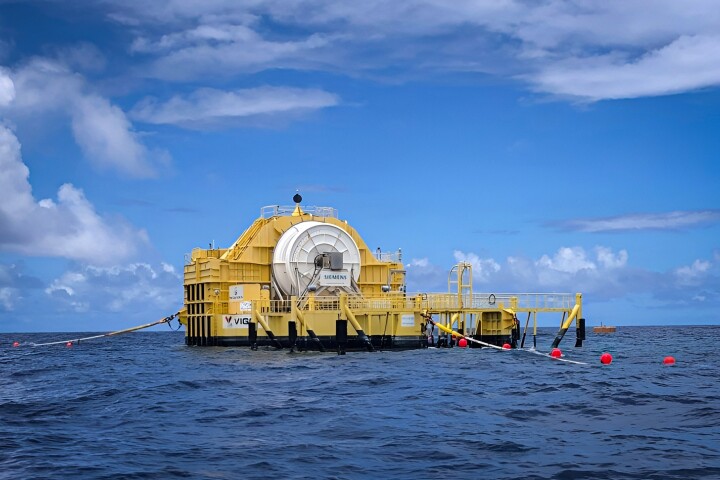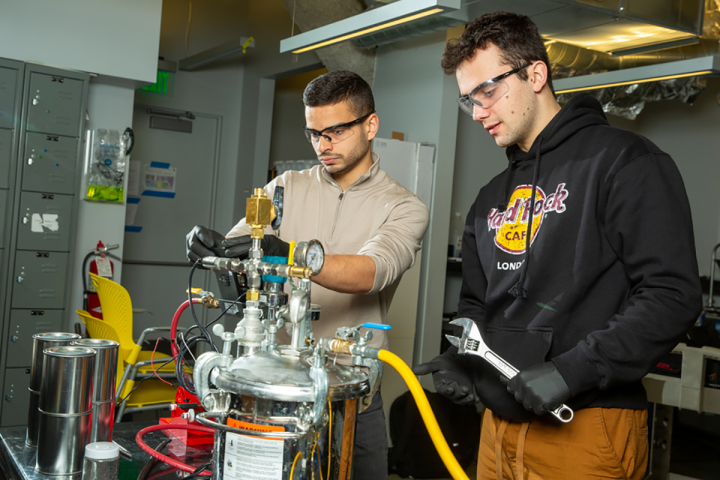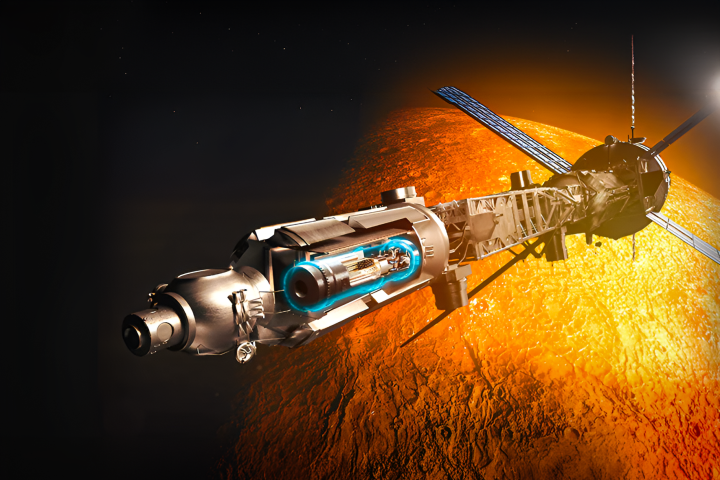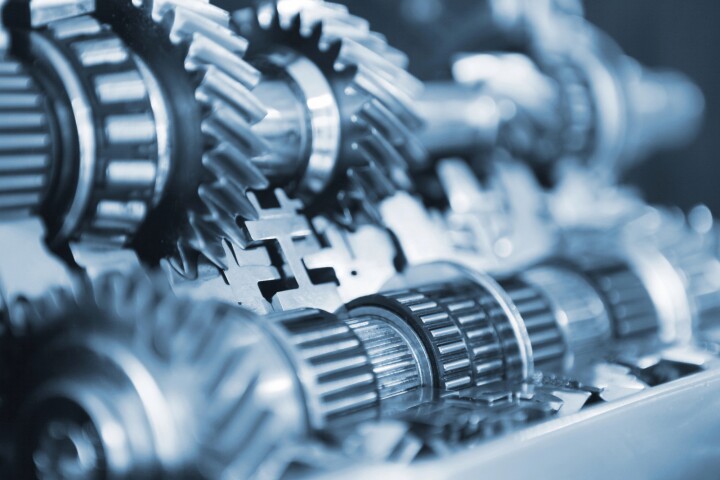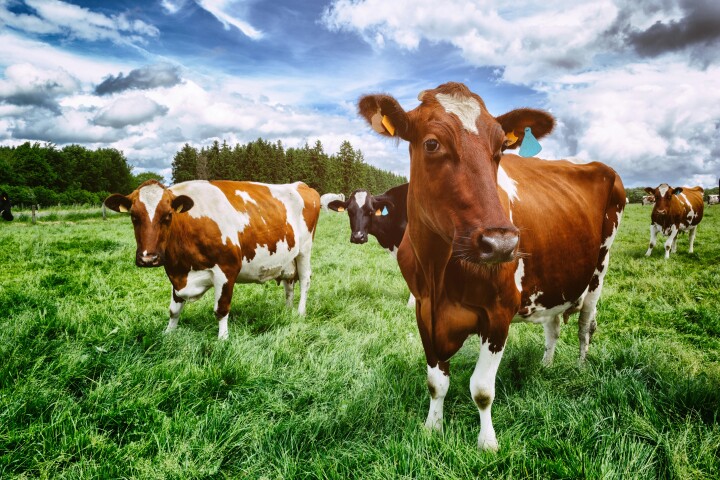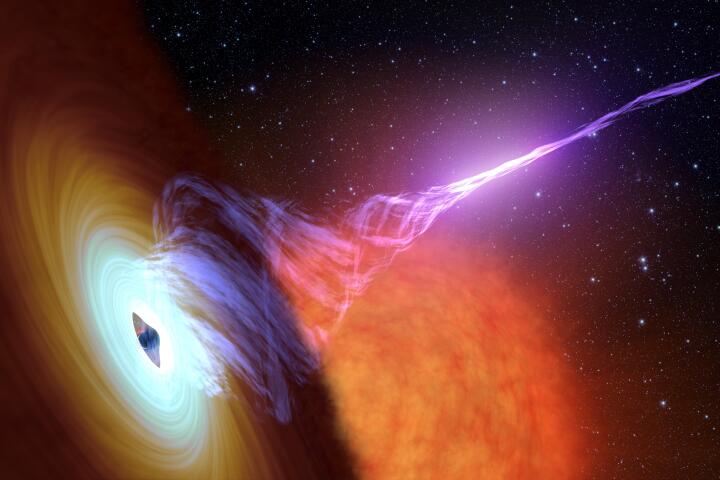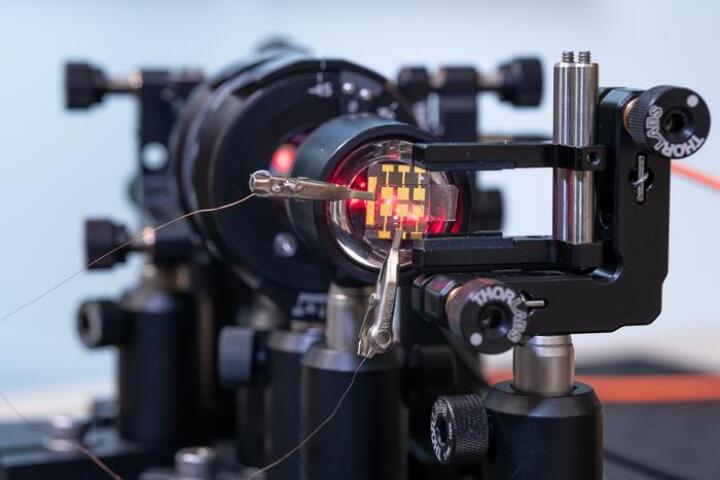Science
The latest in science news, from the depths of space to the quantum realm.
Camera captures the world as animals see it, with up to 99% accuracy
January 25, 2024
It’s easy to forget that most animals don’t see the world the way humans do. In fact, many perceive colors that are invisible to us. But now, for the first time, scientists have found a way to capture footage as seen by animals, and it's mesmerizing.
Energy
-
Revolutionary grid-scale wave energy generator deployed in Hawaii
July 26, 2024Ocean Energy has deployed its 826-tonne wave energy converter buoy OE-35 at the US Navy's Wave Energy Test Site off the coast of the island of Oahu ahead of it being hooked up to Hawaii's electricity grid. -
Seawater-slurping hydrogen reactor able to power a sub for 30 days
July 25, 2024MIT scientists have discovered an intriguing new way to produce hydrogen fuel, using just soda cans, seawater and coffee grounds. The team says the chemical reaction could power engines or fuel cells in marine vehicles that suck in seawater. -
World’s first ‘meltdown-proof’ nuclear reactor aces safety test
July 24, 2024China's Tsinghua University has scored a world first by demonstrating the inherent safety of the first operating commercial pebble-bed nuclear reactor by shutting off the power and letting the passive systems maintain control of the reactor core.
Load More
Medical
-
Maglev titanium heart now whirs inside the chest of a live patient
July 26, 2024For the first time, the fully mechanical heart made by BiVACOR, which uses the same technology as high-speed rail lines, has been implanted inside a human being. The feat marks a major step in keeping people alive as they wait for heart transplants. -
The placebo effect unlocked: How the brain tricks itself into pain relief
July 25, 2024In a fascinating discovery, scientists have pinpointed just what happens in our brains when we're expecting pain relief but are unknowingly given a placebo. It reveals just how powerful the mind is in moderating physiological responses such as pain. -
Hair-loss hope: Natural sugar stimulates significant regrowth
July 22, 2024In good news for nearly half the world's men, scientists have found that a naturally occurring sugar in humans and animals can be harnessed as a an effective topical gel for baldness. It sets it up as an inexpensive and safer alternative to minoxidil.
Load More
Space
-
The official definition of a planet could soon change again
July 26, 2024The official definition of a “planet” could be set to change again soon. Last time that happened, Pluto was kicked out of the club, but the new proposed definition is designed to be more inclusive. -
Rolls-Royce gets $6M to develop its ambitious nuclear space reactor
July 23, 2024Rolls-Royce has received an additional £4.8 million (US$6.2 million) in funding from the UK Space Agency (UKSA) to develop key technology for a nuclear micro-reactor that could one day power lunar bases and spacecraft propulsion. -
How NASA and SpaceX will deorbit and destroy the ISS
July 18, 2024NASA has revealed details about its plan to deorbit the International Space Station (ISS) after it's decommissioned in 2030. At a press conference, NASA explained how the US Deorbit Vehicle (USDV) being built by SpaceX will be used for the job.
Load More
Materials
-
Clever armadillo-inspired "fabric" gets stiff or soft as needed
July 23, 2024Soft materials and stiff materials both have their uses, but the two properties typically aren't seen in one substance. RoboFabric is an exception, then, in that it can be switched back and forth between soft and stiff states. -
Carbon-capturing concrete alternative driven by photosynthesis
July 23, 2024A new material tackles the carbon problem of concrete production and usage by employing a pretty unusual workforce: cyanobacteria. The bio-cement these micro-organisms help to produce harnesses a process that's existed in nature for 3.5 billion years. -
'Superlubricious' coating radically drops friction between metal parts
July 16, 2024Using biowaste from cassava plants, scientists have created a coating that virtually eliminates friction in metal parts. The breakthrough has the potential to deliver better fuel economy and deliver enormous savings in myriad industries.
Load More
Biology
-
"Enormous concern": New bird flu transmission paths confirmed
July 25, 2024Scientists are again on high alert, as whole genome sequencing of the H5N1 virus has revealed that it is capable of multidirectional infections across species. While human risk is low, it's a step forward for the pathogen in this biological arm's race. -
Metal mouth – Komodo dragons' teeth found to have a sharp iron coating
July 24, 2024As if Komodo dragons didn't seem ferocious enough already, scientists have now discovered that the reptiles tear through flesh using a coating of iron on their teeth. It is now believed that dinosaurs such as T. rex may have been similarly endowed. -
What does it mean when a chicken blushes? Now we know
July 24, 2024For the first time, researchers found that chickens fluff their facial feathers and blush in response to varied stimulation, likely as a way to reveal their inner emotional states. The link could help improve our stewardship of the birds.
Load More
Environment
-
Earth's hottest day on record broken twice this week
July 24, 2024Earth saw its hottest day on record this week – twice. According to the Copernicus Climate Change Service data, Sunday claimed the top spot for highest global average temperature since the records began in 1940, only to be broken again on Monday. -
Sports fields could cool cities via rainwater stored beneath turf
July 09, 2024Artificial-turf sports fields may be more durable than those covered in grass, but they also get very hot during warm weather. Scientists have devised a method of cooling them – and the cities they're in – using rainwater stored beneath the turf. -
Canon sorting tech brings black plastics into the recycling mix
June 19, 2024Black plastics pose an ID problem for sorting machines at recycling facilities, as the sensors can't see them. Canon has developed a system that users lasers and tracking tech to identify and sort plastic trash on the conveyor belt, no matter its color.
Load More
Physics
-
Element 120 discovery possible after titanium beam breakthrough
July 25, 2024Scientists at Berkeley Lab have used a titanium beam to make atoms of element 116. This new way to make the super rare element stands as a proof-of-concept that they could soon potentially create the undiscovered element 120, which may be stable. -
World's most accurate atomic clock off by 1 second every 30 billion years
July 04, 2024Scientists have developed the most accurate atomic clock – if you ran it for twice the current age of the universe, it would only be off by one second. This could not only improve services like GPS, but help scientists probe how gravity affects time. -
Plasma fireballs from black holes are now being made here on Earth
June 14, 2024Supermassive black holes have been known to belch gigantic beams of plasma into space – and now scientists have managed to recreate these fireballs in a lab at CERN.
Load More
Electronics
-
All-in-one polychromatic LEDs replace RGB for radically sharper screens
June 18, 2024While the Apple Vision Pro VR headset has a much-hyped resolution of 3,386 PPI (pixels per inch), a new technology more than doubles that figure. It was created by Los Angeles-based startup Q-Pixel, and it could revolutionize the world of video displays. -
AI synthesizer bridges technology and creativity in music composition
February 15, 2024SPIN challenges conventional notions of music creation by inviting users to collaborate with an AI language model called MusicGen. With its distinctive blend of a turntable and a drum machine, SPIN offers users a creative music composition tool. -
Eye-tracking window tech tells sightseers about what they're looking at
January 05, 2024If you're on a sightseeing tour in a bus, you really don't want to be looking away from the passing attractions to Google them on your smartphone. The AR Interactive Vehicle Display is intended to help, by showing relevant information on the vehicle's window glass.
Load More
Quantum Computing
-
Diamond-stretching technique makes qubits more stable and controllable
November 30, 2023Researchers are claiming a breakthrough in quantum communications, thanks to a new diamond-stretching technique they say greatly increases the temperatures at which qubits remain entangled, while also making them microwave-controllable. -
Perovskite LED unlocks next-level quantum random number generation
September 05, 2023Random numbers are critical to encryption algorithms, but they're nigh-on impossible for computers to generate. Now, Swedish researchers say they've created a new, super-secure quantum random number generator using cheap perovskite LEDs. -
Silicon quantum computing surpasses 99% accuracy in three studies
January 19, 2022Three teams of scientists have achieved a major milestone in quantum computing. All three groups demonstrated better than 99 percent accuracy in silicon-based quantum devices, paving the way for practical, scalable, error-free quantum computers.
Load More

